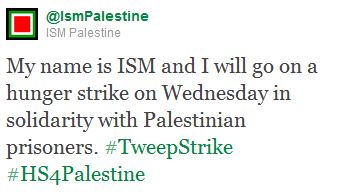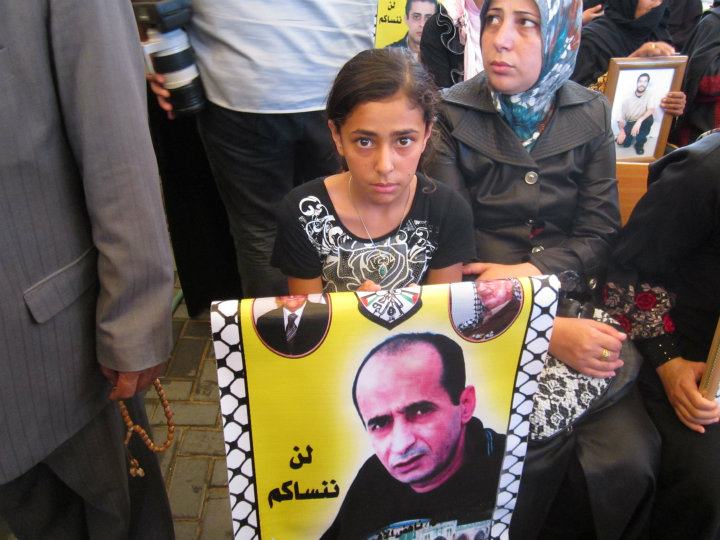Tag: Gaza
-

#TweepStrike: A call from Gaza to support Palestinian prisoners
11 October 2011 | The Electronic Intifada, Rana Baker In solidarity with Palestinian prisoners held under harsh conditions in Israel’s jails, a new twitter trend emerged today from Gaza. The trend is #TweepStrike and is an open invitation to everyone across the globe to go on a hunger strike on Wednesday Oct. 12th. A few months…
-
Gaza: Planting in something dead
5 October 2011 | International Solidarity Movement, Gaza Around Gaza is a 300 meter “buffer zone,” a no go zone, a land of death. Gaza is not just a prison, it is a shrinking prison. Every time that Israel expands this zone, Gaza gets a little smaller. Every Tuesday, the Beit Hanoun Local Initiative and…
-

Gaza protest supports Palestinian prisoners on hunger strike
3 October 2011 | International Solidarity Movement, Gaza Today over a thousand Palestinians converged on the International Committee of the Red Cross building in Gaza, Palestine, continuing a tent protest that began outside the walled compound yesterday and bolstering a weekly sit-in by the families of Palestinian detainees in Israeli prisons. These events began a…
-
Three cousins die in Gaza tunnel collapse
30 September 2011 | International Solidarity Movement, Gaza Shortly after 5:00 pm on Sunday, September 25, three Palestinians died when sewage leaking from an Egyptian pipeline caused a tunnel connecting the Egyptian and Palestinian sides of the Rafah border, in which they were working, to collapse. It was the second time that the pipeline, which…
-
International activists in Gaza defiant despite repeated attacks
26 September 2011 | Islam Online, Hama Waqum The Civil Peace Service (CPS) Gaza human rights observation boat has returned to the waters off the Gazan coast after being grounded for two months due to Israeli naval attacks. CPS Gaza aims to monitor human rights violations committed off the coast of Gaza, in which Gazan fishermen…
